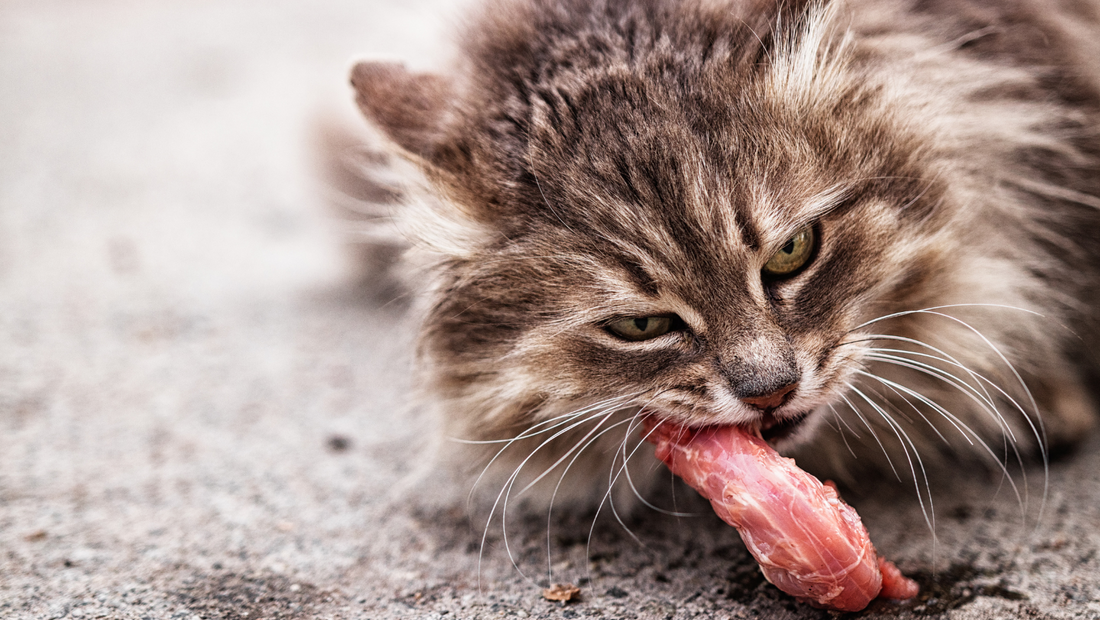
Chews for Feline Happiness & Healthy Teeth (without brushing your cat’s teeth)
Chewing is a behavior that we most often associate with dogs, but did you know that it’s a natural behavior for cats too?! Just like with dogs, chewing can provide significant benefits for cats, including keeping them busy and cleaning their teeth at the same time. Providing your cat with chews, such as chicken necks, rabbit ears, and turkey hearts, provides mental stimulation, exercises and strengthens their jaw, and cleans plaque and tartar from their teeth.
The True Nature of Cats
We want every cat guardian to think of their cats as little tigers. Sure, cats are cute and cuddly too, but they are also natural hunters and carnivores. They have sharp claws and teeth, are extremely agile, and have a keen ability to stalk, pounce, and kill their prey. Their jaws are strong with sharp teeth meant to rip into flesh and crush bone and their rough tongue can help lick bones clean.
When you consider a cat’s true hunting nature and then picture the food that we provide to them (mushy, soft food), you can see how a meaty bone or tendon is much more likely to satisfy their natural chewing instinct.
Chews and the Fight Against Plaque
Chews also help clean plaque and tartar from your cat’s teeth, which helps prevent periodontal disease, gingivitis, and other dental problems. Remember that the first line of defense in protecting your cat from developing dental issues is to provide them with a healthy diet that consists of little to no carbohydrates that are predominantly found in dry food (kibble). Plaque is a bacteria that feeds off of sugar, and since sugar is a type of carbohydrate, it’s safe to reason that kibble is worse for your cat’s teeth, as well as other aspects of her health.
For many cats, that natural instinct to chew kicks in when you present them with a delicious, meaty chicken neck. However, for some cats, they have to be taught “how” to chew on larger pieces of meat or softer chews (try our sliced pork tongues). If your cat doesn’t gravitate to chewing immediately, you can cut it up into smaller bite-sized pieces, for example, try our cubed turkey hearts, and once your cat is hooked offer a full turkey heart. As your cat’s jaw gets stronger from the exercise of chewing, and they become more accustomed to the larger pieces, continue increasing the size of the pieces. It can be a gradual process, but many cats will graduate to gnawing on full-sized chicken necks, rabbit ears, and even whole sardines! Visit our Cat Chews and Treats page to see all of the delicious chews we have to offer, and unleash your cat’s wild instincts!
